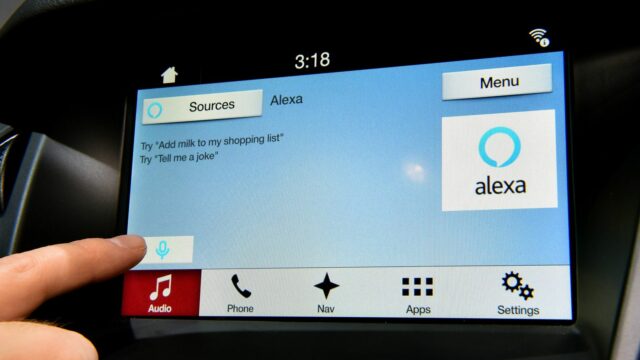This feature can also be called “let’s play your favorite song now”







A lot is going on in the auto industry, and one of the topics is the smart car (not an actual smart brand). They’ll be able to drive themselves, so why not do more, and read you better?

Nowadays, a car “knows” when you’re tired, for example, and suggests you pull over for a coffee break, or at least stop driving so goddamn erratically. Ford tells us that, in a not-so-distant future, a car would be able to know how you feel by the tone of your voice, or by the shape your mouth is making on your face. What would it do with that information, you’d ask. It could play your favorite song. I don’t know how that would work, but I do know that, when I’m angry, the last thing I want to hear is someone telling me to calm down, or worse—to start singing.
Fortunately, though, future technology would restrict to simple applications like the one you’ve just read.

By 2022, 90% of all new cars are expected to offer voice recognition. It’s not a new thing, but the main difference would be the future software will actually be able to understand your words, so you won’t be finding yourself screaming your friend’s name (as listed in the Contacts list) just to be told that no street with that name has been found.
Ford’s SYNC 3 will connect with Alexa (who is Cortana’s, or Siri’s Amazon counterpart) and will be able to understand up to 23 different languages (and even dialects). “For the next step, drivers will not only be able to use their native tongue, spoken in their own accent, but also use their own wording, for more natural speech,” Mareike Sauer, voice control engineer, Connectivity Application Team, Ford of Europe tells us.

“We’re well on the road to developing the empathetic car which might tell you a joke to cheer you up, offer advice when you need it, remind you of birthdays and keep you alert on a long drive,” said Fatima Vital, senior director, Marketing Automotive, Nuance Communications, which helped Ford develop voice recognition for the SYNC in-car connectivity system.
So ahead of us is the in-car personal assistant era. By using cameras and voice recognition software, we’ll be able to signal to the car what we want. If we nod our heads when the phone rings, that could mean you want to answer. If you’re doing twisting motions, it could mean you want to adjust the volume, and so on.

It sounds great, but we’re somehow afraid of how much an unperfected (as many things are, regarding in-car technology) personal assistant would turn our lives behind the wheels in sheer pain.
